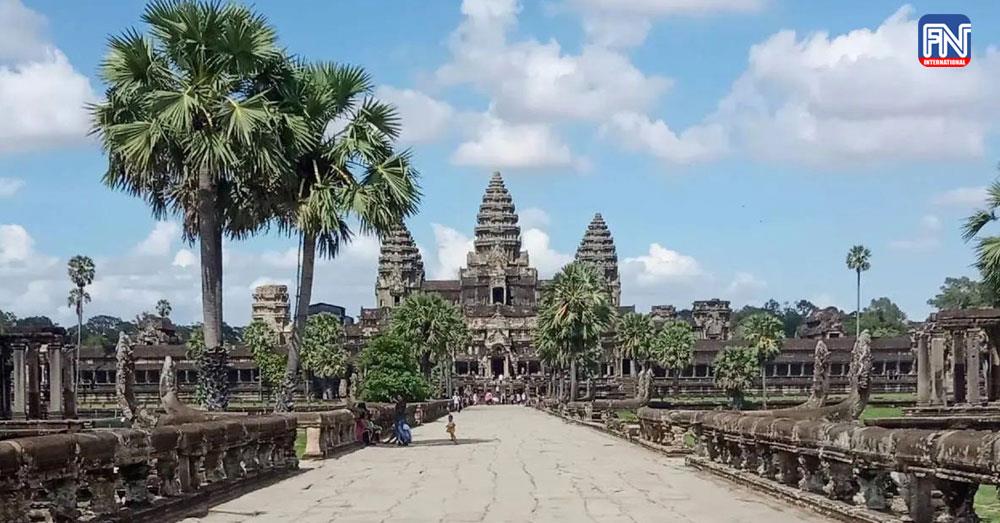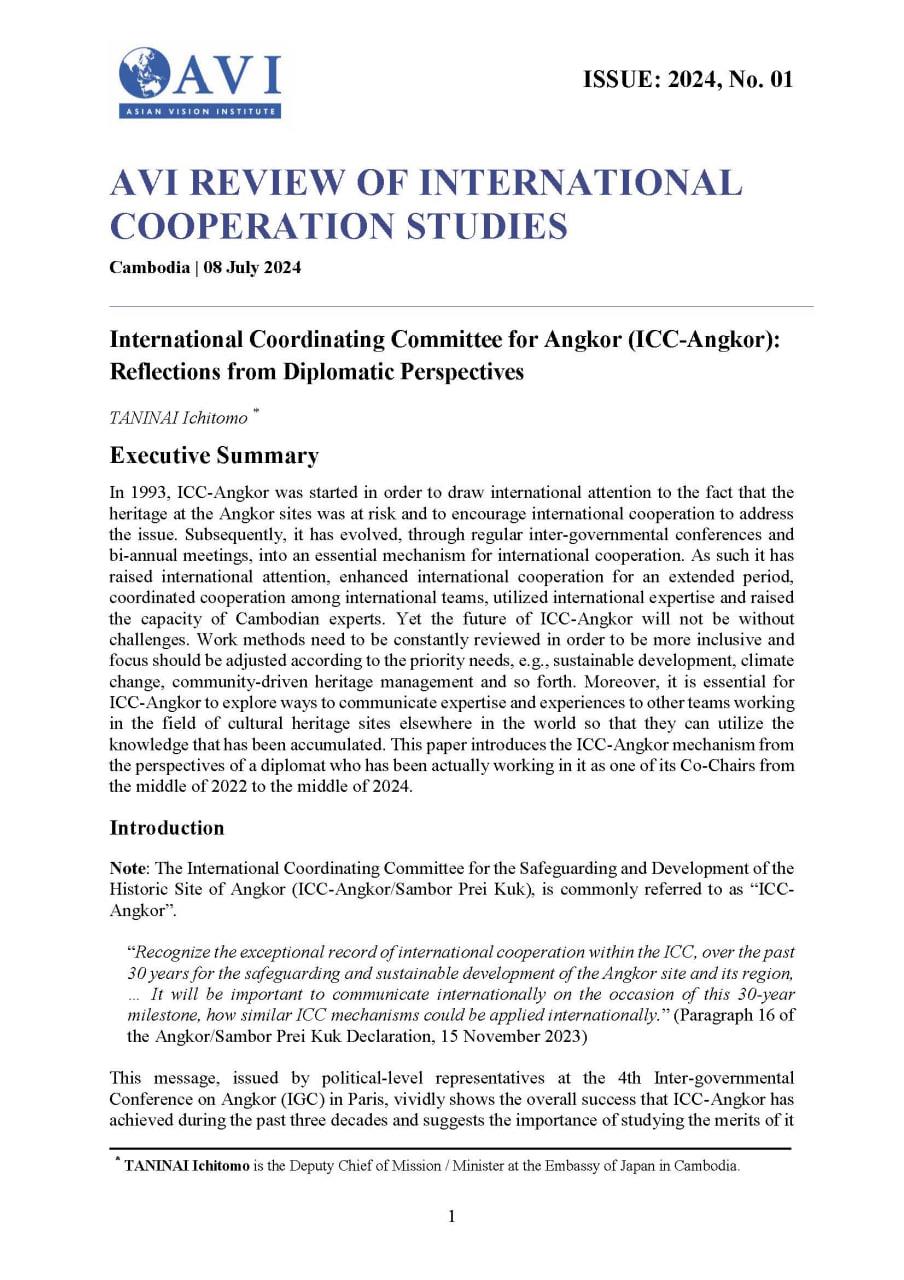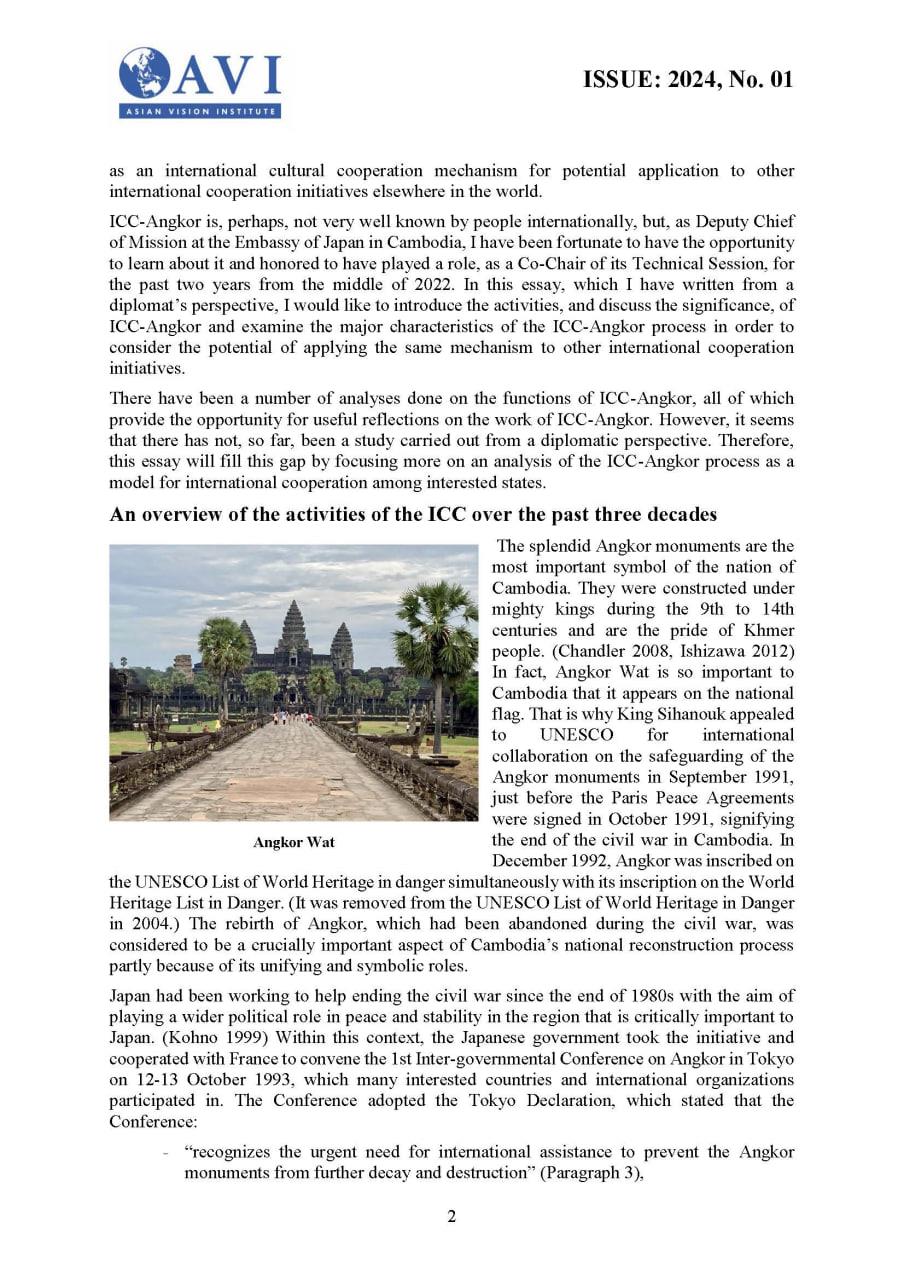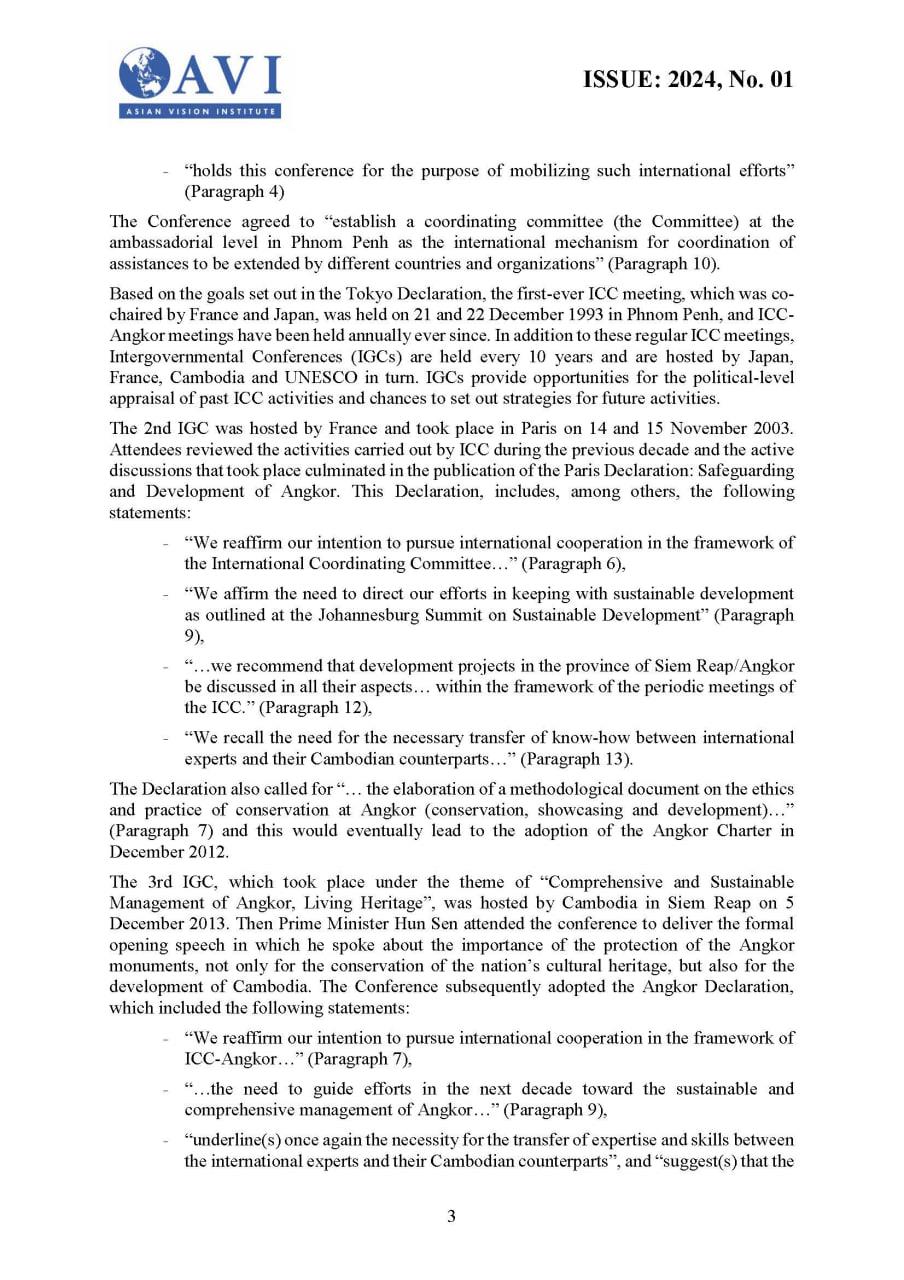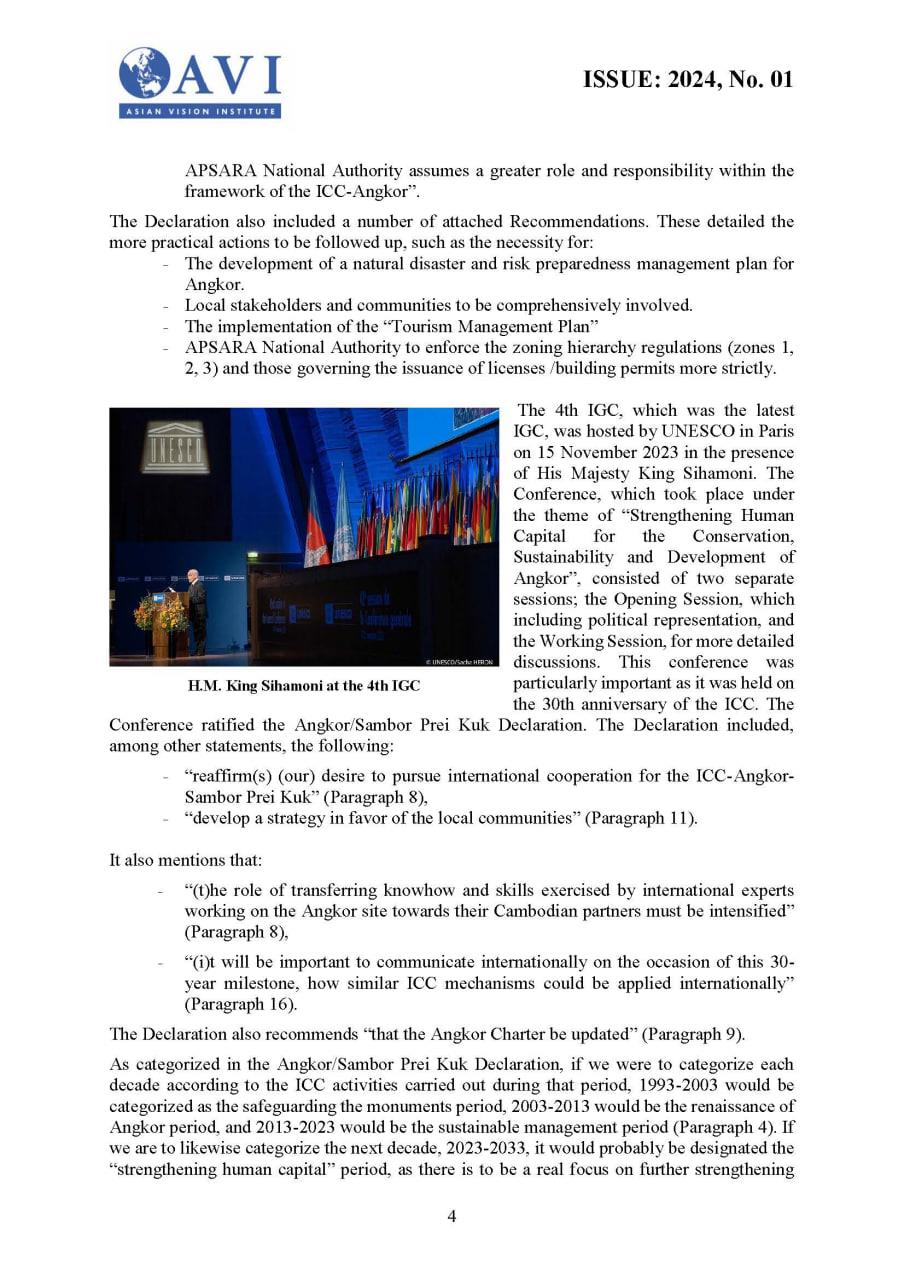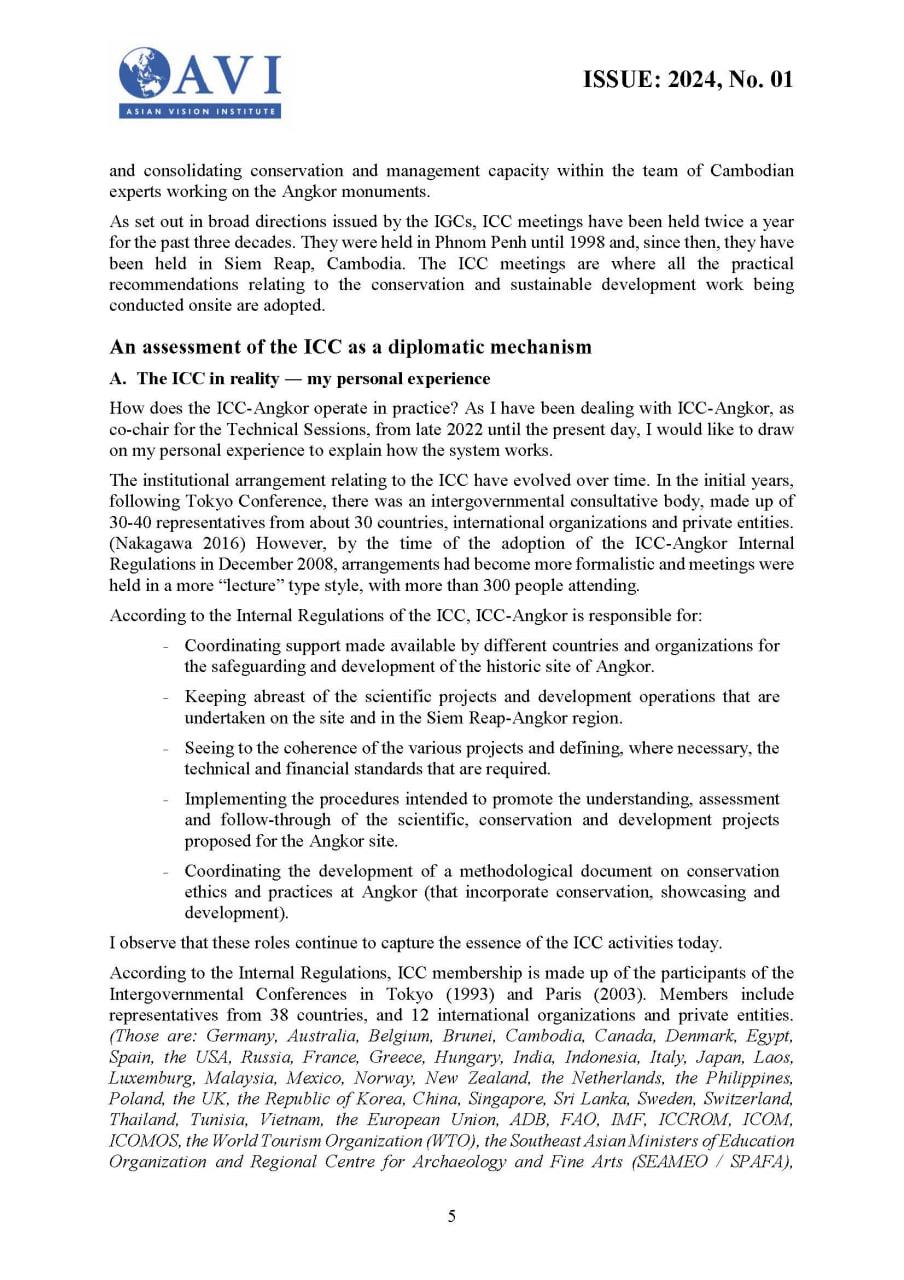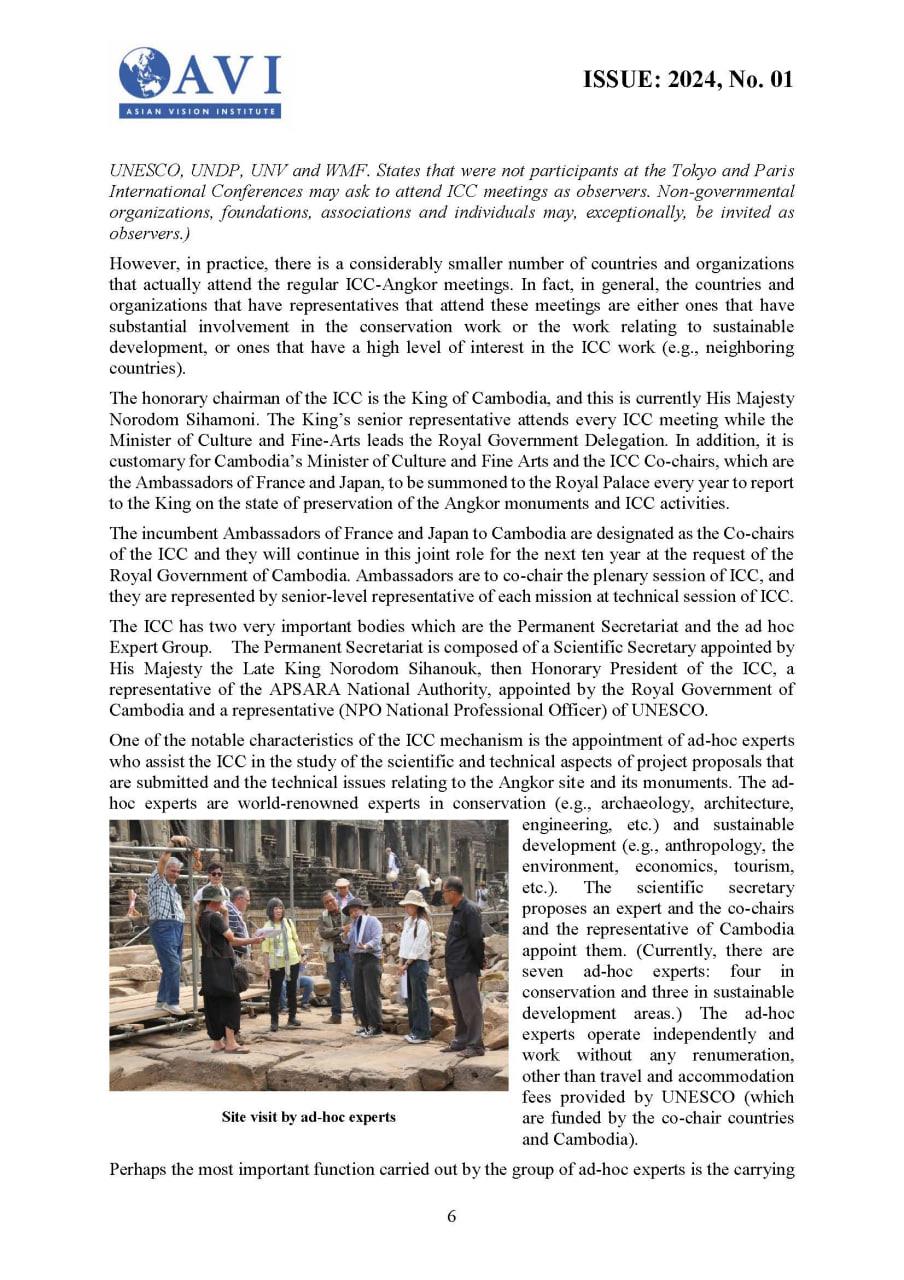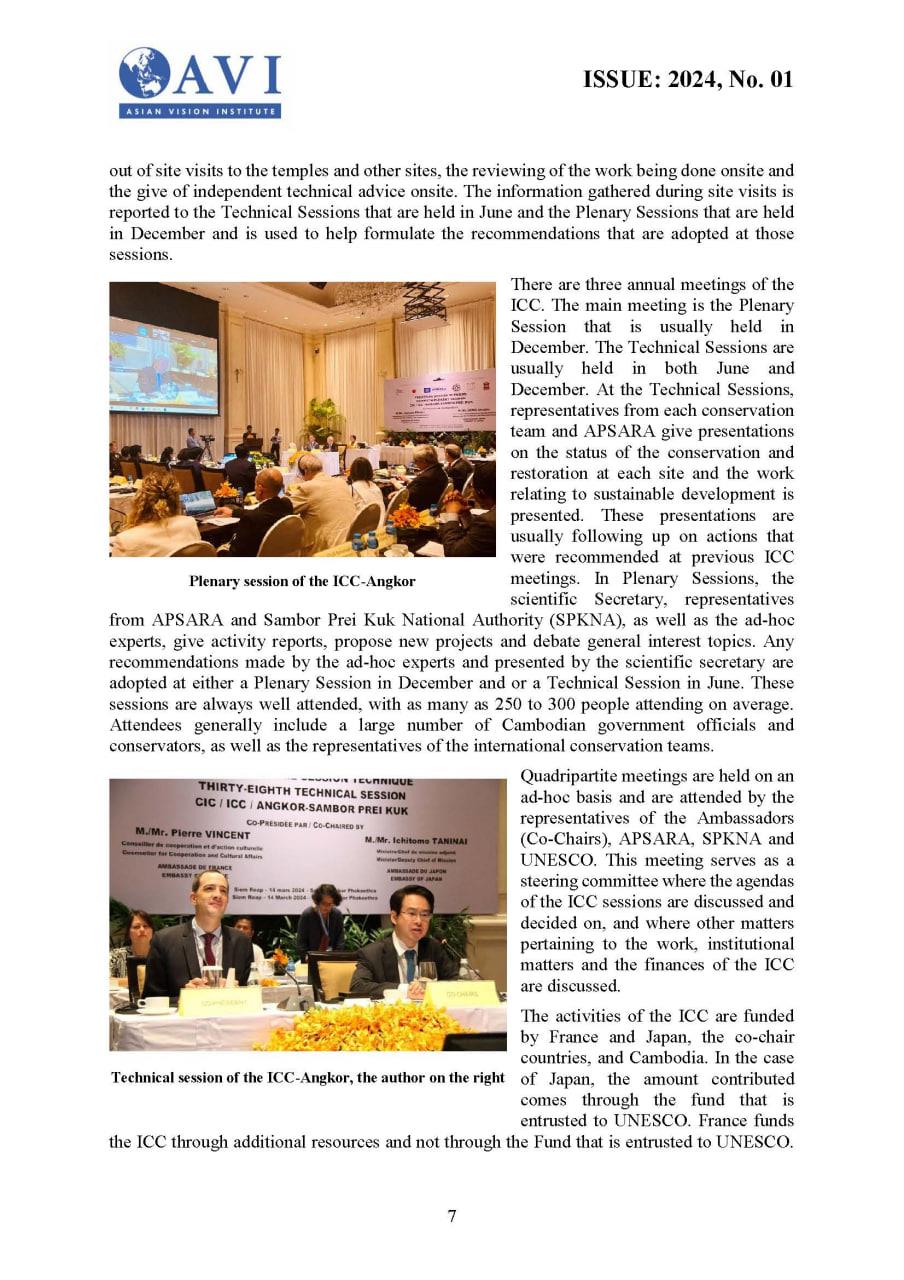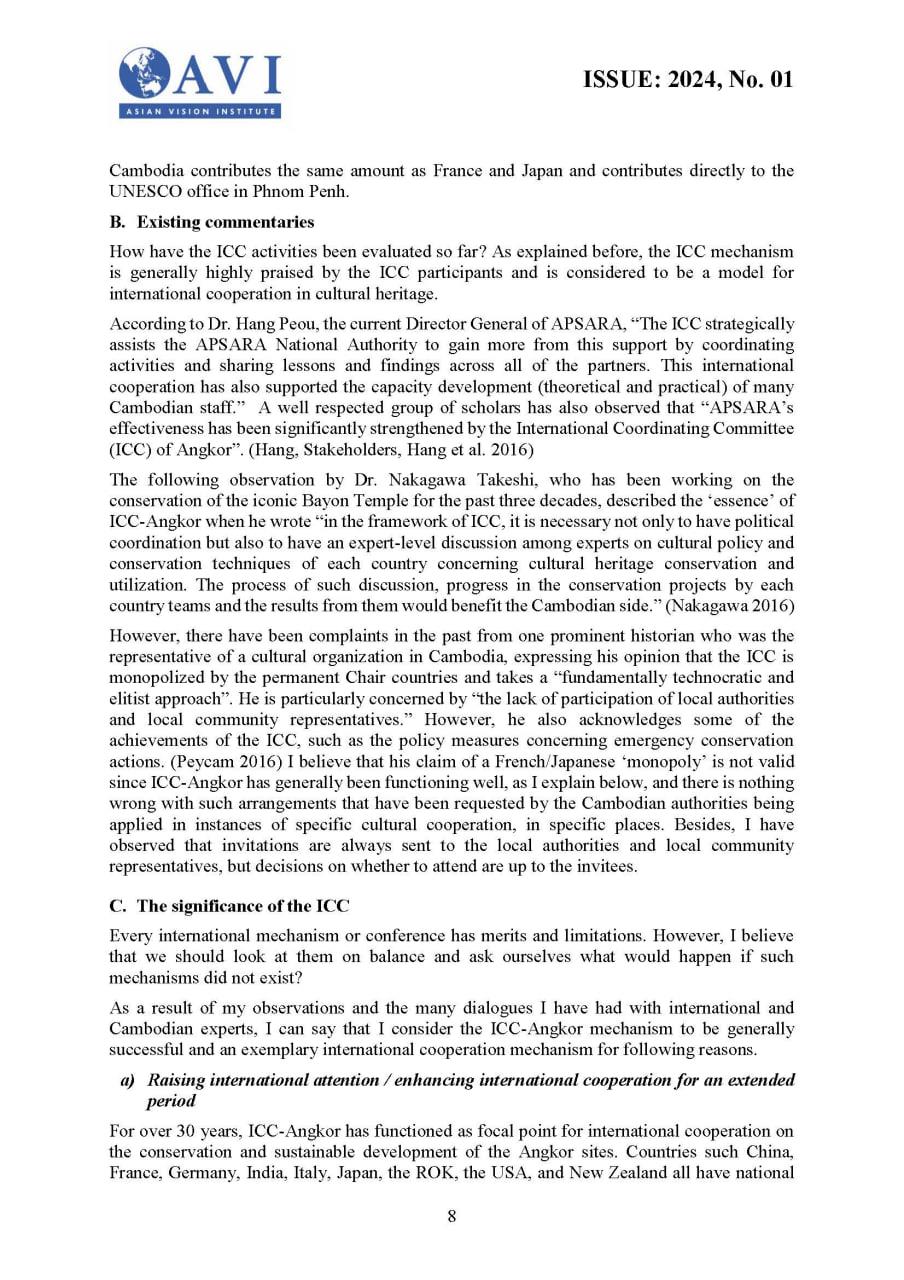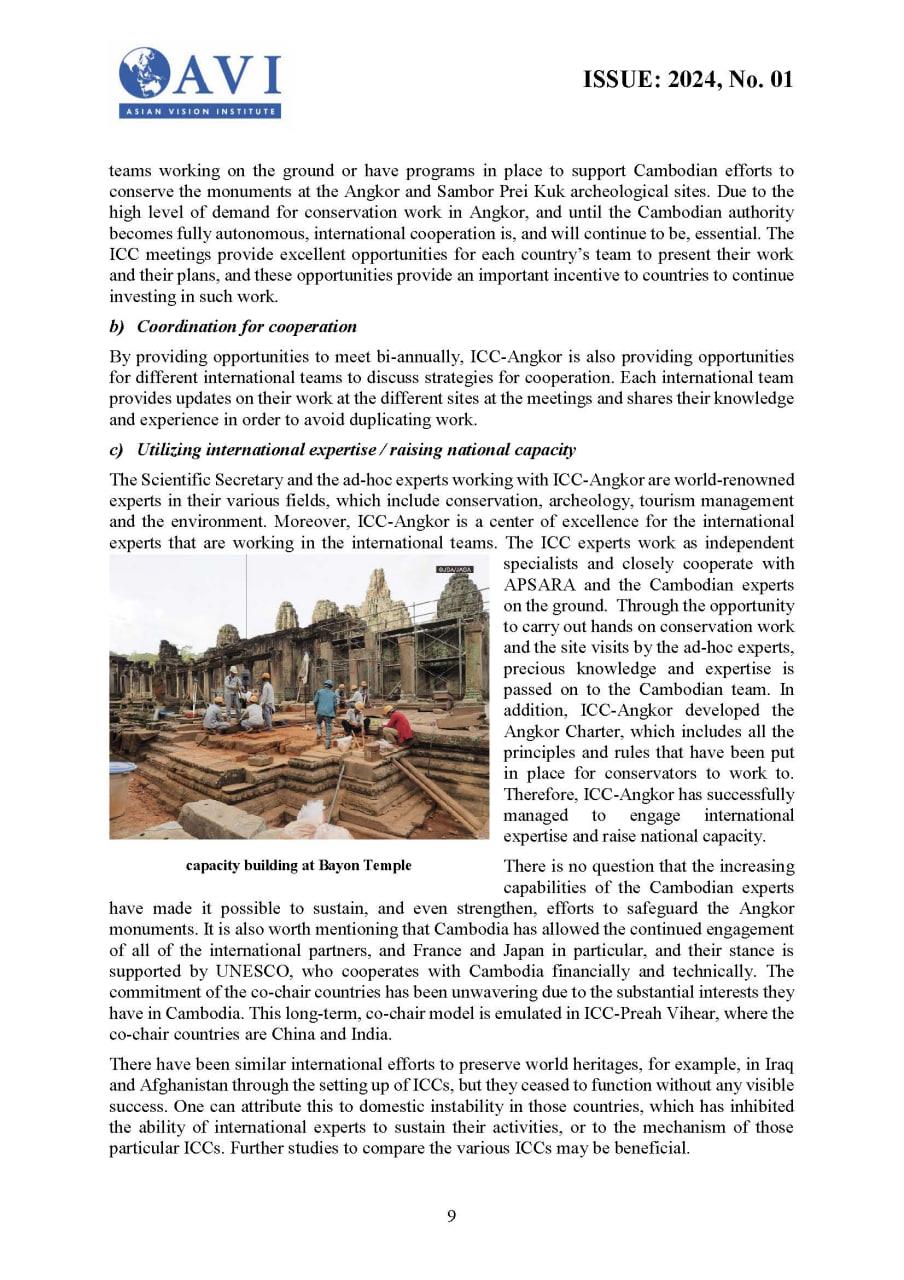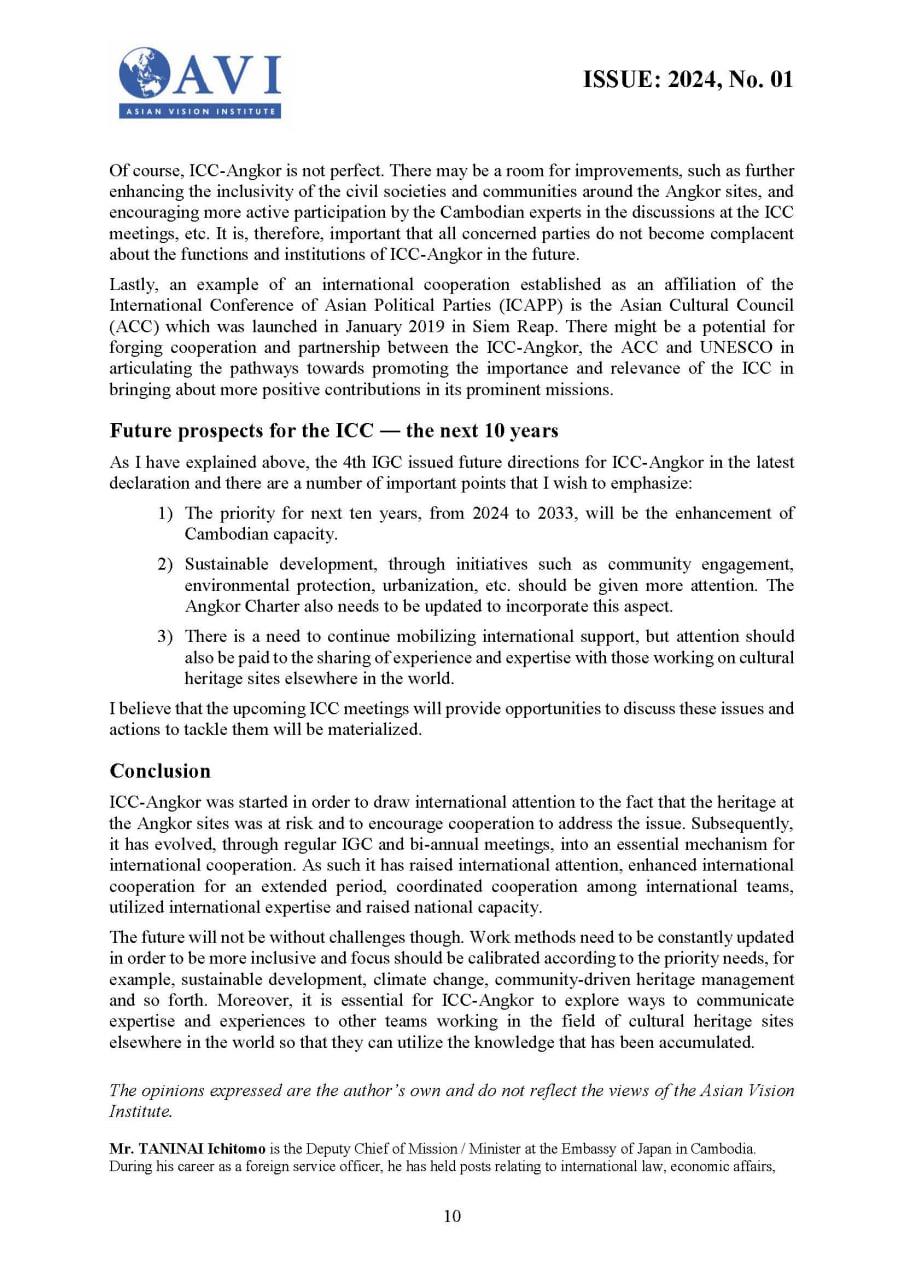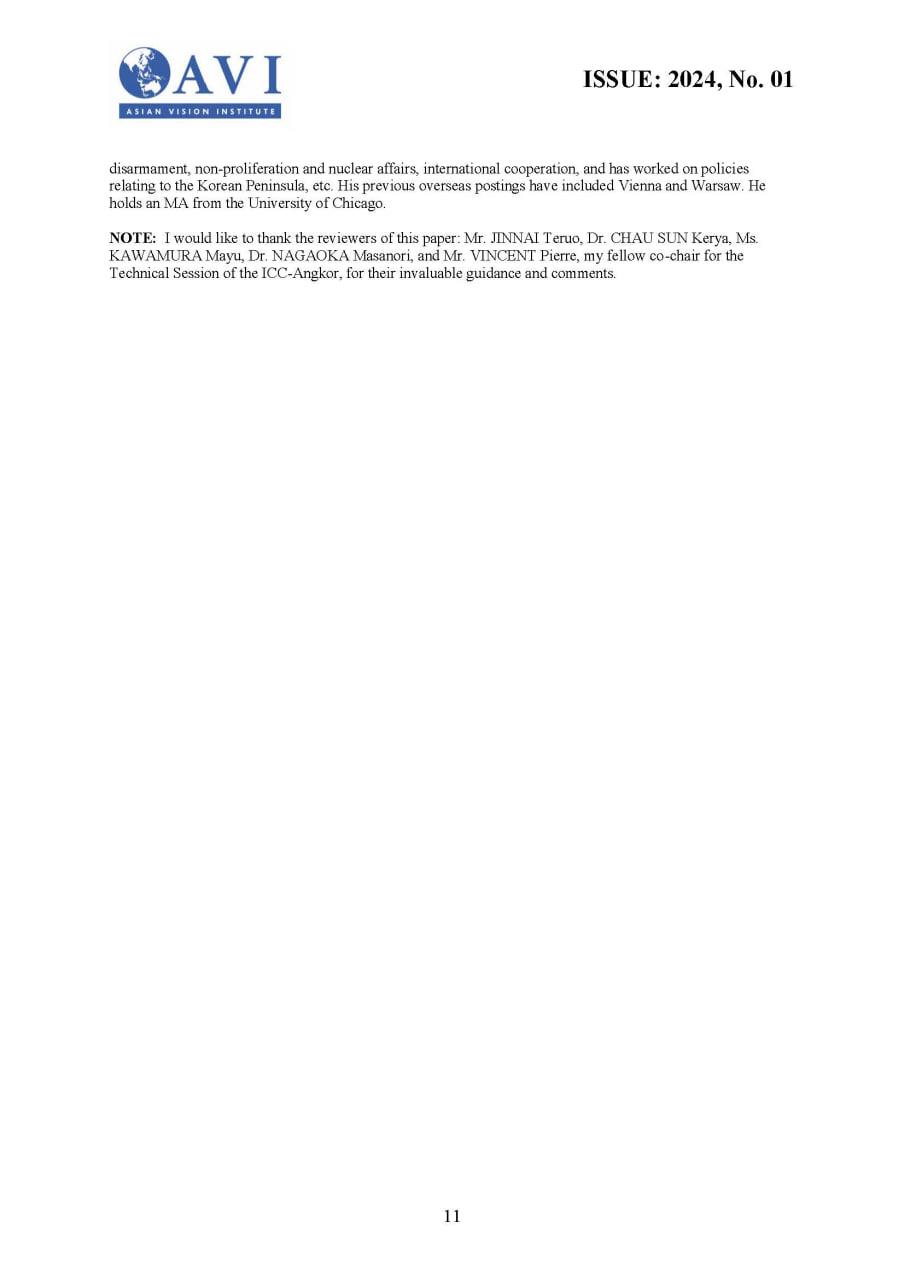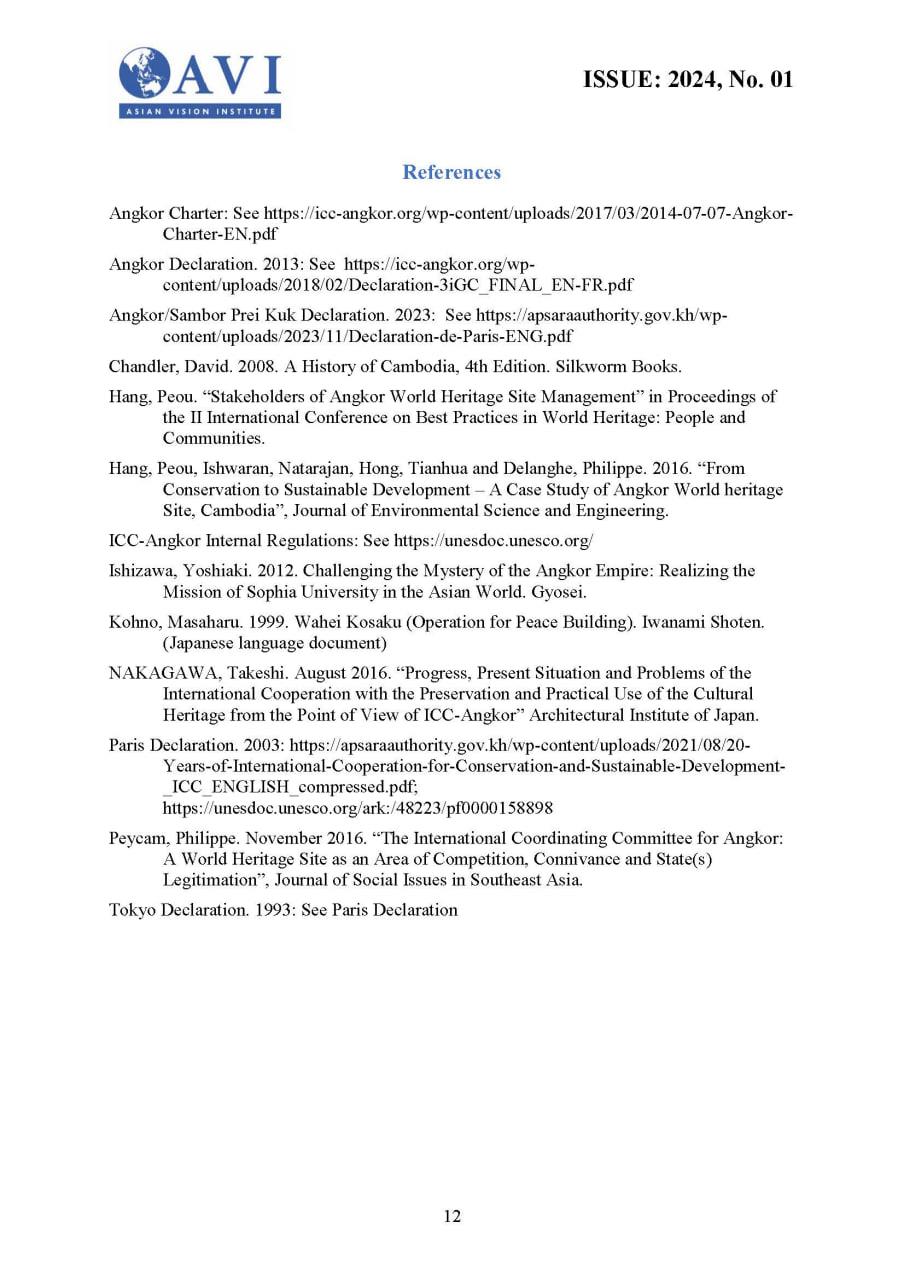Phnom Penh (FN), Jul. 10 – In 1993, ICC-Angkor was started in order to draw international attention to the fact that the heritage at the Angkor sites was at risk and to encourage international cooperation to address the issue. Subsequently, it has evolved, through regular inter-governmental conferences and bi-annual meetings, into an essential mechanism for international cooperation. As such it has raised international attention, enhanced international cooperation for an extended period, coordinated cooperation among international teams, utilized international expertise and raised the capacity of Cambodian experts.
Yet the future of ICC-Angkor will not be without challenges. Work methods need to be constantly reviewed in order to be more inclusive and focus should be adjusted according to the priority needs, e.g., sustainable development, climate change, community-driven heritage management and so forth. Moreover, it is essential for ICC-Angkor to explore ways to communicate expertise and experiences to other teams working in the field of cultural heritage sites elsewhere in the world so that they can utilize the knowledge that has been accumulated. This paper introduces the ICC-Angkor mechanism from the perspectives of a diplomat who has been actually working in it as one of its Co-Chairs from the middle of 2022 to the middle of 2024.
Read AVI Review of International Cooperation Studies: “International Coordinating Committee for Angkor (ICC-Angkor): Reflections from Diplomatic Perspectives”
=FRESH NEWS
